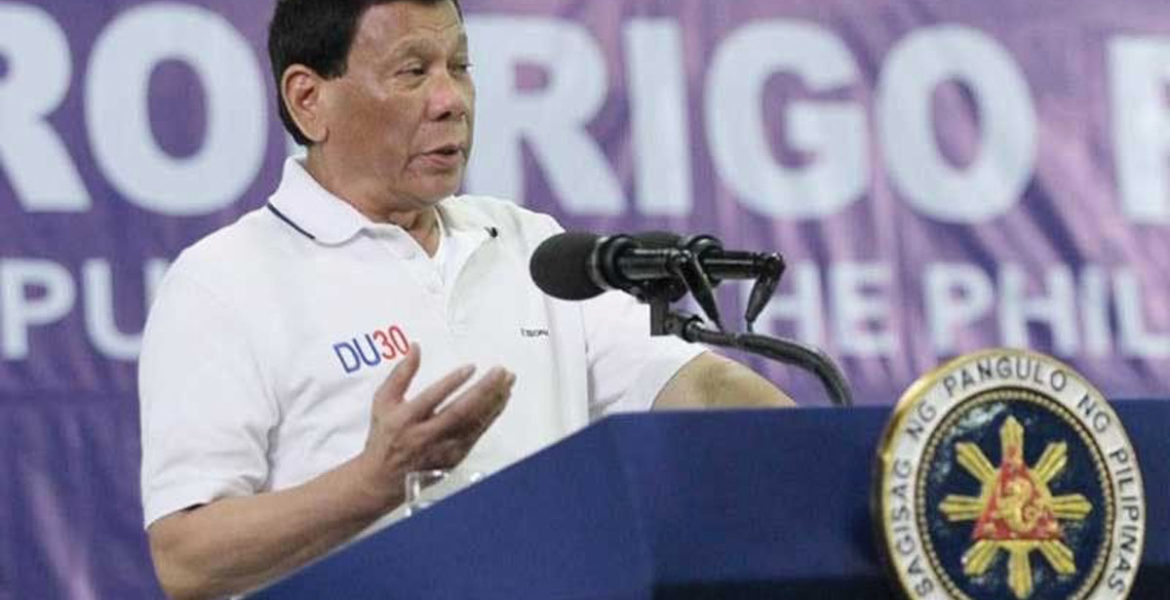PHILIPPINE President Rodrigo Duterte has signed the long awaited Philippine Mental Health Law, which would equip Filipinos with accessible and affordable mental health services.
“Help is finally here,” posted Senator Risa Hontiveros on Thursday, June 21. “Everyday, seven Filipinos turn to suicide. One in five Filipino adults also suffer from a form of mental disorder.”
“The Mental Health Law cements the government’s commitment to a more holistic approach to healthcare — without sound mental health, there can be no genuine physical health,” she added.
Filed last October 2016, the Republic Act No. 11036 or the Philippine Mental Health Law would finally “secure the rights and welfare of people with mental health needs,” according to Hontiveros who authored the bill and was its principal sponsor.
She said that it would further “provide mental health services down to the barangays, integrate psychiatric, psychosocial, and neurologic services in regional, provincial, and tertiary hospitals; improve the country’s mental health care facilities, and promote mental health education in schools and workplaces.”
Also authoring the bill was Senate President Vicente Sotto III, Senators Loren Legarda, Antonio Trillanes IV, Paolo Benigno Aquino IV, Juan Edgardo Angara, and Joel Villanueva.
Commending the signing, Angara acknowledged early intervention and prevention as being crucial in mental illness treatment. Following the signing, he renewed his call for PhilHealth to provide coverage for psychiatric consultations and medicines.
Currently, PhilHealth covers only hospitalization due to acute attacks of mental and behavioral disorders at a package rate of PHP 7,800.
“We hope that in the drafting of the IRR, free psychiatric consultations and medicines shall be made available for all Filipinos,” said Angara.
Under the Mental Health Act, he said PhilHealth must “ensure that insurance packages equivalent to those covering physical disorders of comparable impact are available to patients affected by mental disorders.”
Mental health services have long been a need in the Philippines.
A World Health Organization (WHO) report in 2014 said that there were 2,558 mental health related suicide cases among Filipinos in 2012 alone.
In the U.S., where the issue of mental health awareness has also been gaining traction, so too has the issue been increasingly discussed among Asian Americans who have often considered the issue a stigma.
Asian Americans were found to be three times less likely to seek out mental health services than white Americans, according to the National Latino and Asian American Study.
Compared to the nearly 18 percent of the U.S. general population who sought out mental health services, only 8.6 percent of Asian Americans did.
Reasons for the stigma have often stemmed from pressure to succeed or live up to the “model minority” stereotype, family obligations based on cultural values or traditions, and the problem of mental health concerns as simply being considered taboo among others.
Aside from the stigma, many in the U.S. also face challenges with accessing resources due to language barriers.
But the signing of the Philippine Mental Health Law has been hailed a victory with many groups praising its passing.
The Youth for Mental Health Coalition in the Philippines commended its passing in a post hashtagged #HelpIsHere, calling it the “first legislation that protects rights and welfare of people with mental health conditions, shifts focus of care to the community, improves access to services, and integrates mental health in the schools and workplaces.”
On social media, others have expressed support through other hashtags like #MentalHealthForAll and #MoveForMH.
“No longer shall Filipinos suffer silently in the dark. The people’s mental health issues will now cease to be seen as an invisible sickness spoken only in whispers. Finally, help is here,” said Hontiveros.







